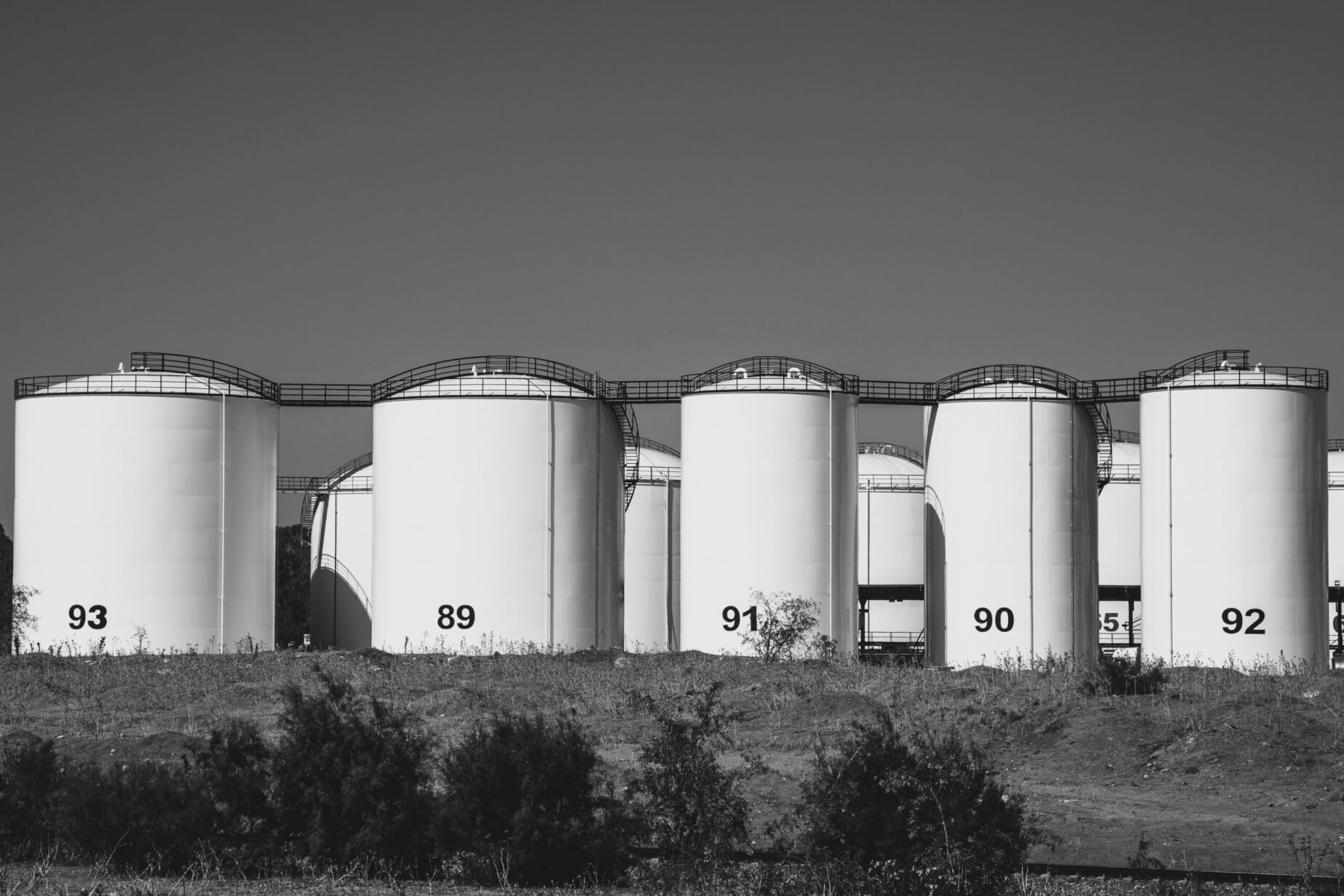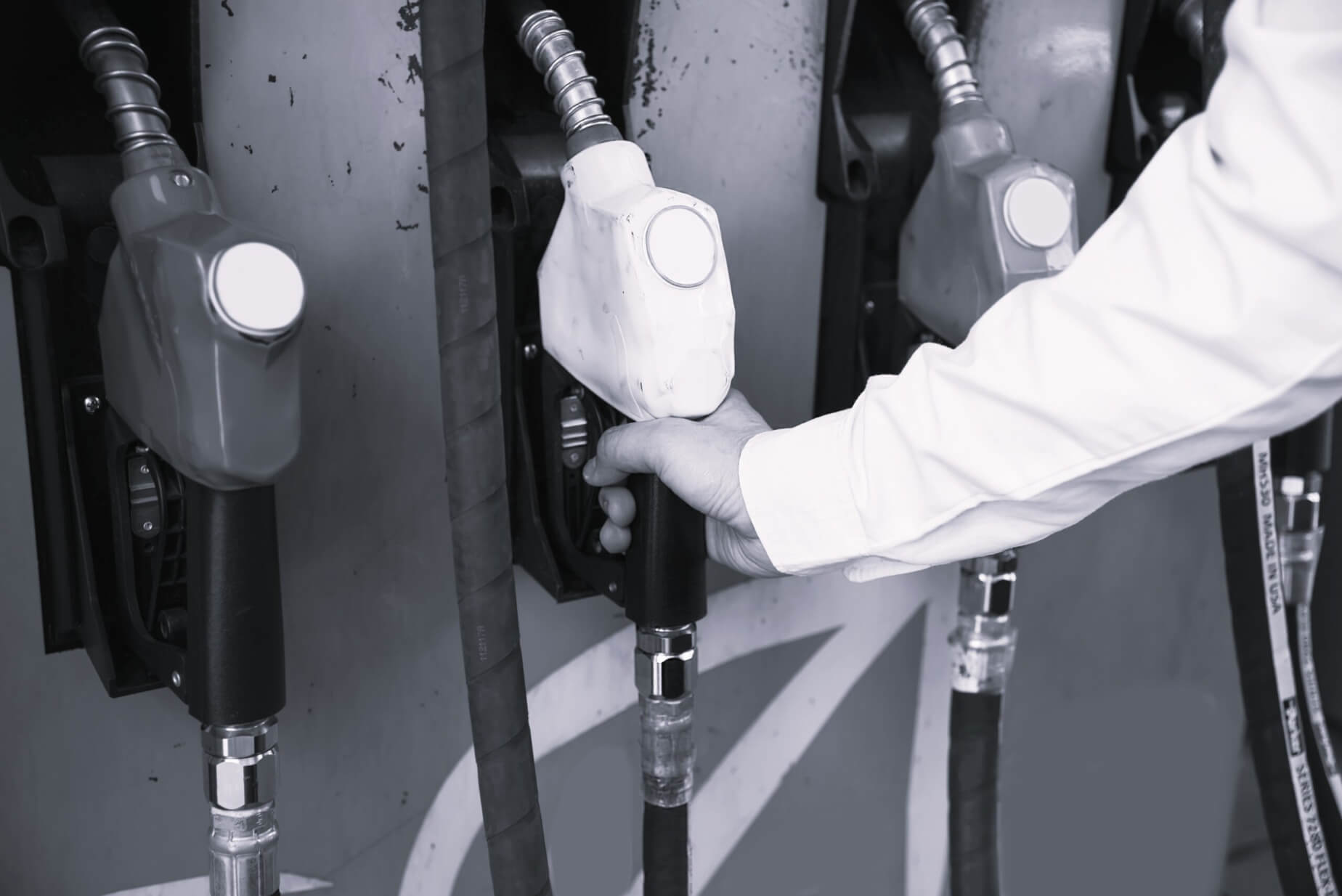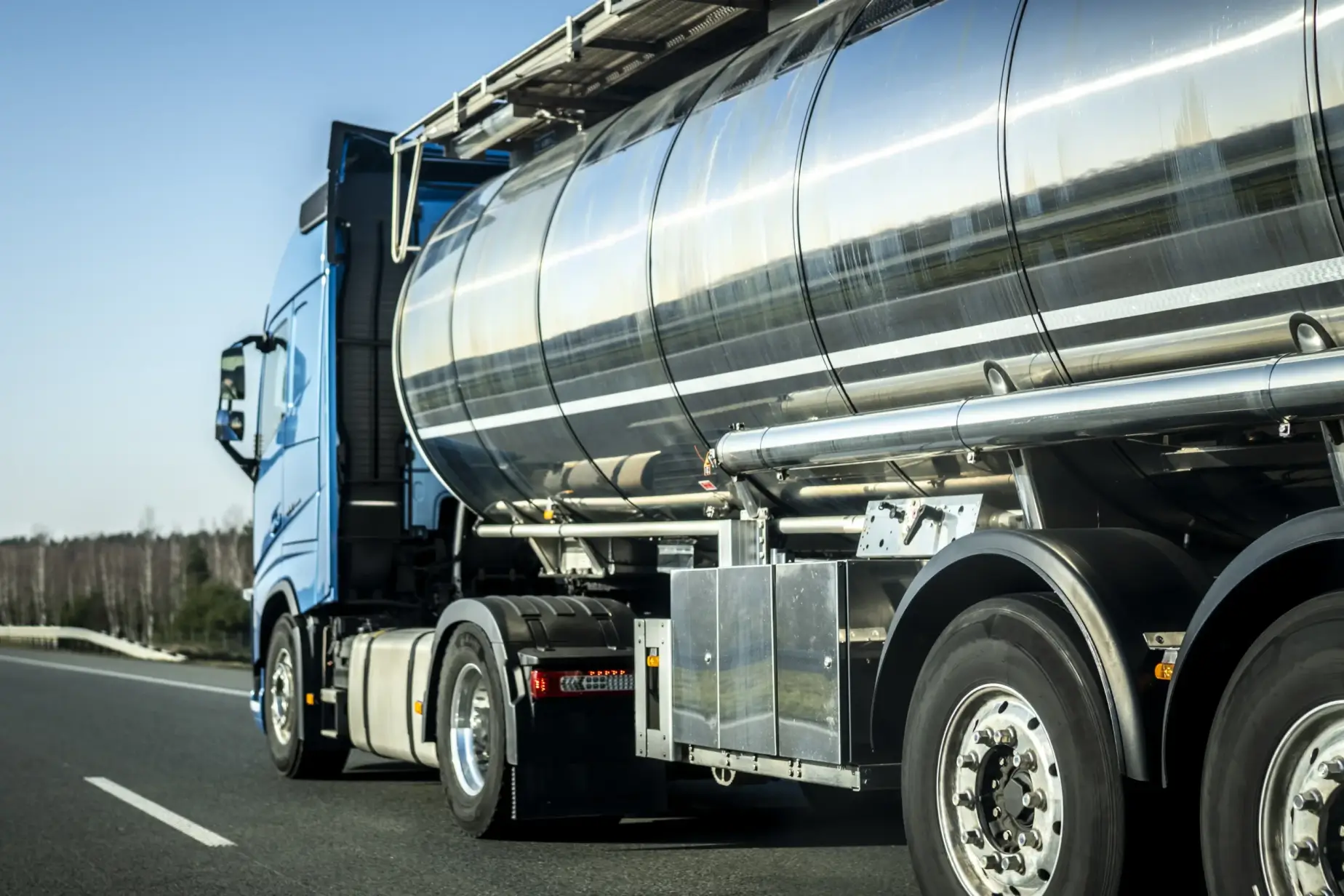Running a fuel-dependent business? A top-notch bulk gasoline tank can make all the difference. A gasoline tank is not just a storage solution—it’s the foundation of your fuel operations. It keeps fuel in one place, so businesses don’t need frequent refills.

Buying gasoline in bulk to store in gas tanks is also a money-saving strategy since large purchases cost less. Whether you’re selling fuel or using it to power your business, choosing the right bulk gas tank impacts efficiency, safety, and cost savings. One wrong choice, and you risk delays, leaks, or compliance issues.
So, how do you pick the best one for your needs? Let’s break it down.
What Are Bulk Gasoline Tanks?
A bulk gasoline tank is a large storage container designed to hold and dispense gasoline for industries that need a consistent fuel supply. Any storage tank with a capacity of 100 gallons or more that contains regulated substances like gasoline or diesel is considered a bulk fuel tank.
Many industries, including transportation, agriculture, manufacturing, and fleet companies, rely on these tanks to ensure efficient fuel access. You may have also seen large fuel tanks placed at construction sites to fulfill fuel demand in that area, so the construction work does not fall behind.
All fuel storage tanks follow similar design principles, but gasoline tanks differ from diesel and other fuel containers. Gasoline is highly volatile, requiring stricter vapor management systems and specialized construction materials to prevent leaks and vapor release.
Types of Bulk Gasoline Tanks
Following are the types of bulk gasoline storage tanks:
1. Above-Ground Storage Tanks (ASTs)

An above-ground storage tank is a large container, usually made of metal, that holds liquids or gases like gasoline, diesel, chemicals, and water. ASTs are placed on the ground, making them easy to see, inspect, and maintain. They are commonly set on concrete pads or steel supports for stability.
ASTs are widely used because they cost less to install, make leak detection easier, and reduce environmental risks. These types of fuel fuel tanks are found on farms, fuel stations, factories, and construction sites. Their storage capacity ranges from 150 gallons to 12,000 gallons.
2. Underground Storage Tanks (USTs)

An underground storage tank (UST) is a fuel container buried beneath the ground that includes a tank and underground pipes for fuel dispensing. USTs save space, protect fuel from temperature changes, and reduce fire hazards.
Unlike above-ground storage tanks, USTs are less visible and more space-efficient. They are made from corrosion-resistant materials like fiberglass or steel with protective coatings to prevent leaks. Since underground leaks can contaminate soil and water, strict environmental regulations apply. Businesses using USTs must follow regular inspections, leak detection, and compliance measures to meet EPA standards.
3. Portable Fuel Tanks

Portable fuel tanks are small, movable containers designed for storing and transporting fuel. They are commonly used to refuel boats, generators, farming equipment, and construction vehicles. Their lightweight design, along with built-in handles or wheels, makes them easy to move.
According to OSHA requirements, portable fuel containers must be made of metal, have secure screw or spring covers, and include a spout or other feature to prevent spills while pouring.
What to Look for When Choosing a Bulk Gasoline Tank
Choosing a suitable bulk gasoline tank is important for safe storage, regulatory compliance, and long-term cost efficiency. Here are key factors you must consider to make the best choice.
● Material Composition
Different materials offer varying levels of durability, corrosion resistance, and suitability for gasoline storage. So, it’s important to consider material composition when choosing a gasoline tank. Compare materials like steel, aluminum, and fiberglass to choose one that fits your storage requirements. Steel tanks are strong but can rust without coatings, while aluminum and fiberglass tanks are corrosion-resistant but less durable.
● Capacity Options
You should have a gas tank with the right storage capacity to ensure you have enough fuel without overstocking. Bulk gasoline tanks have different sizes, from small 500-gallon tanks to large 10,000-gallon options and even more. The best capacity depends on your fuel usage, storage space, and refueling needs. For example, if you need a bulk fuel tank for pickups, choose a smaller, high-capacity option that fits your truck bed.
● Compliance with Safety Standards
You must follow safety regulations and standards for fuel storage tanks to prevent accidents, environmental damage, and legal penalties. Regulations like EPA, OSHA, and NFPA set rules for leak prevention, fire safety, and proper fuel storage. Certifications like UL (Underwriters Laboratories) and Individual Certification Programs by API verify that tanks meet safety and quality standards, ensuring reliable and compliant fuel storage.
● Secondary Containment Systems
A secondary containment system is a protective barrier that collects leaks or spills from the main fuel tank. It includes structures like double-walled tanks, spill containment pallets, or concrete barriers. This system prevents fuel from contaminating soil and water.
● Ventilation and Pressure Control
Proper ventilation and pressure control prevent pressure buildup and help maintain safe fuel storage. Pressure relief valves release excess pressure and reduce the risk of explosions or tank damage. Similarly, adequate ventilation is essential to avoid vapor accumulation, improving safety and compliance with regulations.
Best Bulk Gasoline Tanks for Businesses in 2024
Businesses now have more durable and efficient bulk gasoline tank options to choose from due to advancements in design and materials. Here are some of the best options in 2024 that offer reliability, safety, and cost-effectiveness.
● Top-Rated Above-Ground Tanks
1. STI-Fireguard UL2085 Tanks
The Freguard is a double-wall, fire-protected aboveground storage tank with thermal insulation. They include bulkheads for internal compartments, emergency vents, and compliance with IFC and CARB air emissions standards. The storage capacities can range from 300 to 75000 gallons. These tanks are suitable for fleet businesses, construction sites, and farms.
2. STI-Flameshield®
The FlameShield tanks have a tight-wrap double-wall design with built-in secondary containment and interstitial monitoring. They offer a 2-hour fire-tested performance and come with various support options, including saddles, skids, legs, and skirted bases. Available in sizes up to 75,000 gallons.
● Reliable Underground Storage Tanks
1. ACT-100-U® Underground Storage Tanks
The ACT-100-U tanks have a steel inner wall with a 100-mil fiberglass outer layer and a thick urethane coating for corrosion protection. They are resistant to all petroleum products and vapors. The flat-end design lowers installation costs and allows flexible placement. With capacities of up to 60,000 gallons, they comply with EPA, UL 58, and UL 1746 regulations.
2. Permatank® Underground Storage Tanks
Permatanks have a double-wall design made of steel and fiberglass-reinforced composite. This provides durability and leak protection. They meet UL 58 and UL 1746 standards for underground fuel storage. They are available in sizes up to 60,000 gallons.
● Portable Gasoline Tanks for Mobility
Portable gasoline tanks offer easy transport and safe fueling for remote sites, farms, and emergency use. They come in different sizes with durable materials and secure no-spill spouts. For example, the VEVOR Fuel Caddy 35-gallon is a steel gas storage tank with four wheels and a manual transfer pump. It is UV-resistant, dent-proof, and built for tough weather conditions. The 9.8 ft kink-free hose with a nozzle for easy fuel transfer.
Why Invest in Bulk Gasoline Storage Tanks?

Businesses that invest a significant sum in bulk gasoline storage tanks likely have a well-thought-out plan to make the investment worthwhile. As a business owner, your investment won’t go to waste. You can reduce long-term costs by purchasing fuel in bulk at lower rates. It also makes fuel management easier, ensuring you have the necessary stock to keep operations running.
Bulk gas tanks offer safety with features like secondary containment and spill prevention. You can avoid the risk of fuel contamination, leaks, and environmental hazards while staying compliant with regulations. Bulk fuel tanks also benefit your business by saving time, improving efficiency, and preventing delays from off-site refueling or waiting for deliveries.
How to Maintain Bulk Gasoline Tanks for Longevity
These essential maintenance tips help extend the lifespan of bulk gasoline tanks and ensure safe fuel storage.
● Regular Inspections
Regular inspections help keep your bulk gasoline tank safe and functional. Check for leaks, rust, and structural damage to prevent fuel loss and hazards. You must also look for cracks, weak spots, or worn-out seals and fix issues early to avoid costly repairs.
● Cleaning and Decontamination
Dirt, water, and sludge can build up over time and contaminate the fuel. To prevent this, properly drain any water present in the tank, remove debris, and clean the interior with approved cleaning agents. It will help keep your fuel fresh and your tank in good condition.
● Monitoring Systems
Monitoring systems help you keep track of fuel levels and detect leaks before they become major issues. Fuel level sensors ensure you never run out of fuel, while leak detection systems prevent spills and environmental damage. These systems improve safety, reduce waste, and make fuel management easier.
Leading Brands in Bulk Gasoline Tanks
You must purchase the bulk gasoline tanks from the leading brands to ensure safety, durability, and compliance. Reputed manufacturers follow strict industry regulations, use high-quality materials, and design tanks to prevent leaks and contamination.
Let’s look at some of the best in the industry.
- Highland Tank is known for its durable and reliable fuel storage solutions. They offer a variety of above-ground and underground tanks, trusted for quality and safety across industries.
- Modern Welding Company specializes in custom-built fuel storage tanks, including steel and fiberglass models. They have a solid reputation for providing high-quality, compliant tanks, and the products are known for their long-lasting performance.
- Snyder Industries is recognized for its innovative polyethylene tanks, which are lightweight and corrosion-resistant. They are famous for their environment-friendly products and strong customer support.
How Much Do Bulk Gasoline Tanks Cost?
Gas tank prices vary depending on the type of tank. Other factors, such as specialized materials and additional features, can also impact the cost. However, storage capacity is the main factor affecting prices. Small above-ground tanks (500–1,000 gallons) cost between $1,000 and $5,000, while larger tanks (10,000+ gallons) range from $10,000 to $50,000 or more. Underground tanks are generally more expensive due to additional installation requirements.
Besides the tank price, you must also consider installation, permits, and maintenance costs. Setting up the tank safely and following regulations can add thousands to the total cost.
To manage your budget, compare pricing from different suppliers, calculate long-term savings from buying fuel in bulk, and look into financing options like leasing or payment plans to reduce upfront expenses.
Choosing the Right Bulk Gasoline Tank for Your Needs
Selecting the right bulk gasoline tank is crucial for ensuring safe, efficient, and compliant fuel storage. Focus on your needs, whether it’s application, capacity, or meeting regulations. Choosing a quality tank now will save you time and money down the line. Take the time to explore your options and invest in a reliable tank for long-term benefits.
FAQs
How long can gasoline be stored in bulk tanks?
Gasoline lasts up to one year when stored in a sealed container under shelter. Once opened, its shelf life drops to six months at 20°C (68°F) and three months at 30°C (86°F). However, it stays usable for about one month in vehicle or generator fuel tanks due to exposure to air and temperature changes.
What are the legal requirements for gasoline tanks?
Gasoline storage tanks must meet these legal requirements:
- Tanks must follow Environmental Protection Agency (EPA) standards for spill prevention, leak detection, and corrosion resistance.
- Workplace tanks must meet Occupational Safety and Health Administration (OSHA) guidelines for fire safety, ventilation, and proper labeling.
- The National Fire Protection Association (NFPA) sets rules for tank placement, materials, and fire prevention measures.
- State and local rules also apply that require permits, inspections, and secondary requirements to prevent fuel spillage.
How do I prevent evaporation or contamination?
You can prevent fuel evaporation and contamination by using a tightly sealed fuel cap. Regularly inspect tanks for leaks and corrosion and also consider adding a fuel stabilizer for long-term storage. You must also place the tanks under a shade to reduce temperature changes. Painting the fuel tank white can also help minimize condensation and evaporation
Can bulk tanks be used for other fuels?
Yes, bulk tanks can store other fuels like diesel, kerosene, and biodiesel. However, the tank material and design must be compatible with the specific fuel type to prevent corrosion and contamination. Regulations may also vary based on the fuel stored, requiring proper labeling, ventilation, and safety measures.
Are bulk gasoline tanks suitable for small businesses?
Yes, bulk gasoline tanks can be a good option for small businesses to ensure sufficient fuel storage. Besides maintaining fuel availability on-site, businesses can also benefit from lower prices or discounts when buying in bulk. So, it’s a win-win solution for cost and convenience.
Partner with Fuel Logic for Reliable, High-Quality Refueling Solutions
Do you want a hassle-free solution to refilling your bulk gas storage tanks? Get in touch with Fuel Logic. We’re a trusted fuel delivery agency, having earned the trust of world-class businesses like Google, Pepsi, Walmart, and many more. Our reliable on-site diesel, DEF, and gasoline fuel delivery services mean you no longer have to make frequent trips to the fuel station.
Whether you need fuel anywhere in the United States, we’ve got you covered with service locations across the lower 48 states. Call us now to order fuel or explore our FAQ section for answers to your questions.





